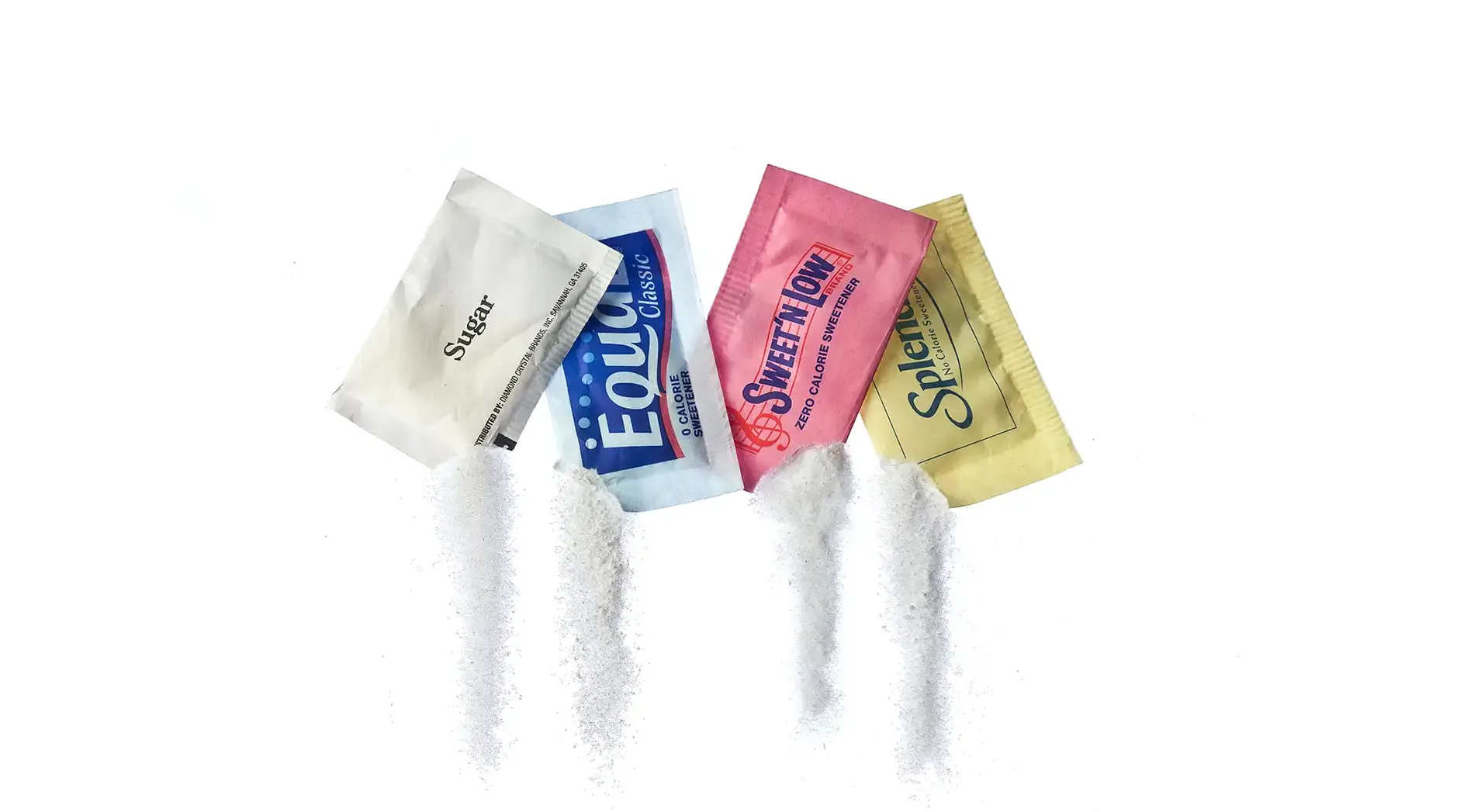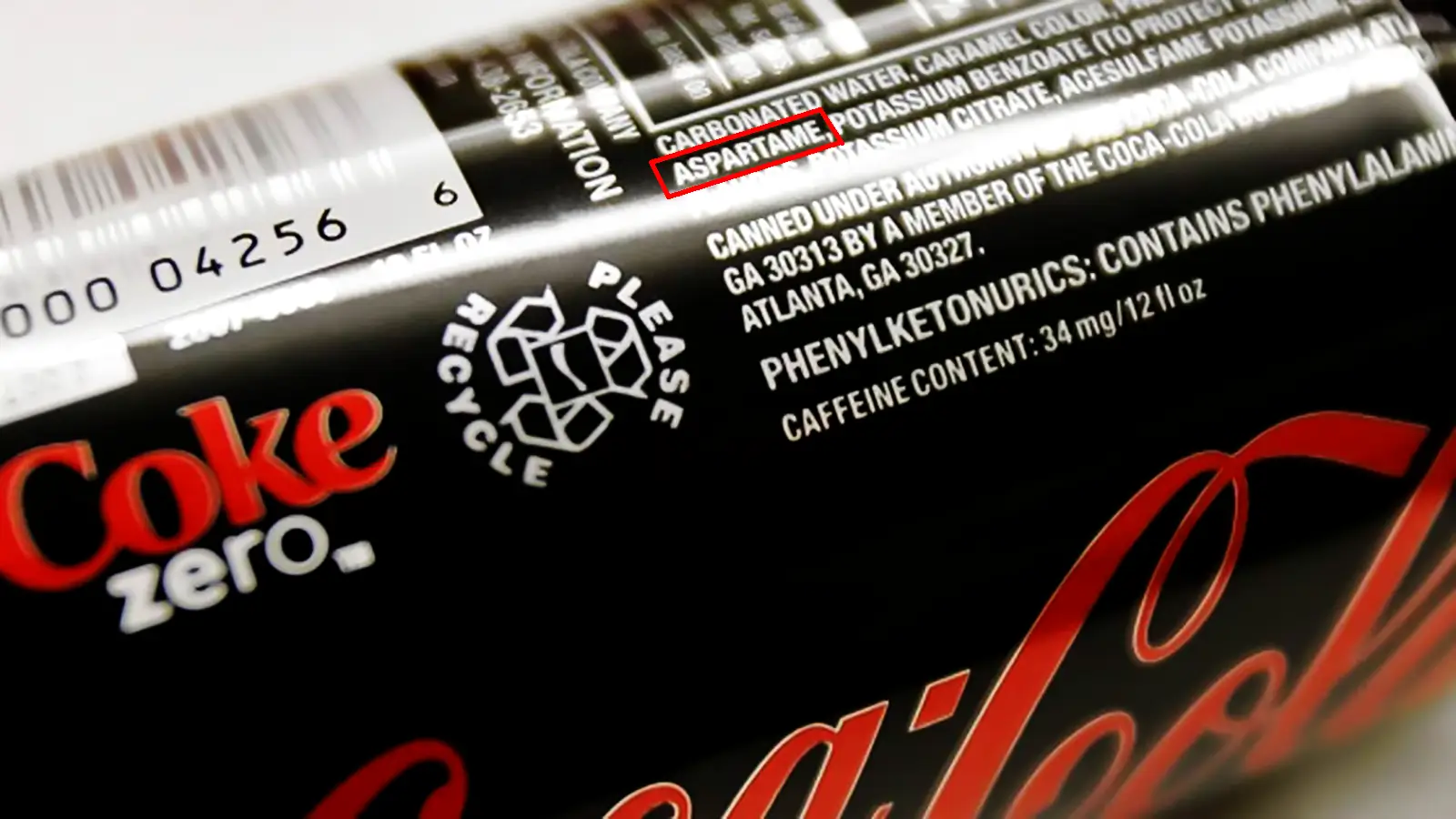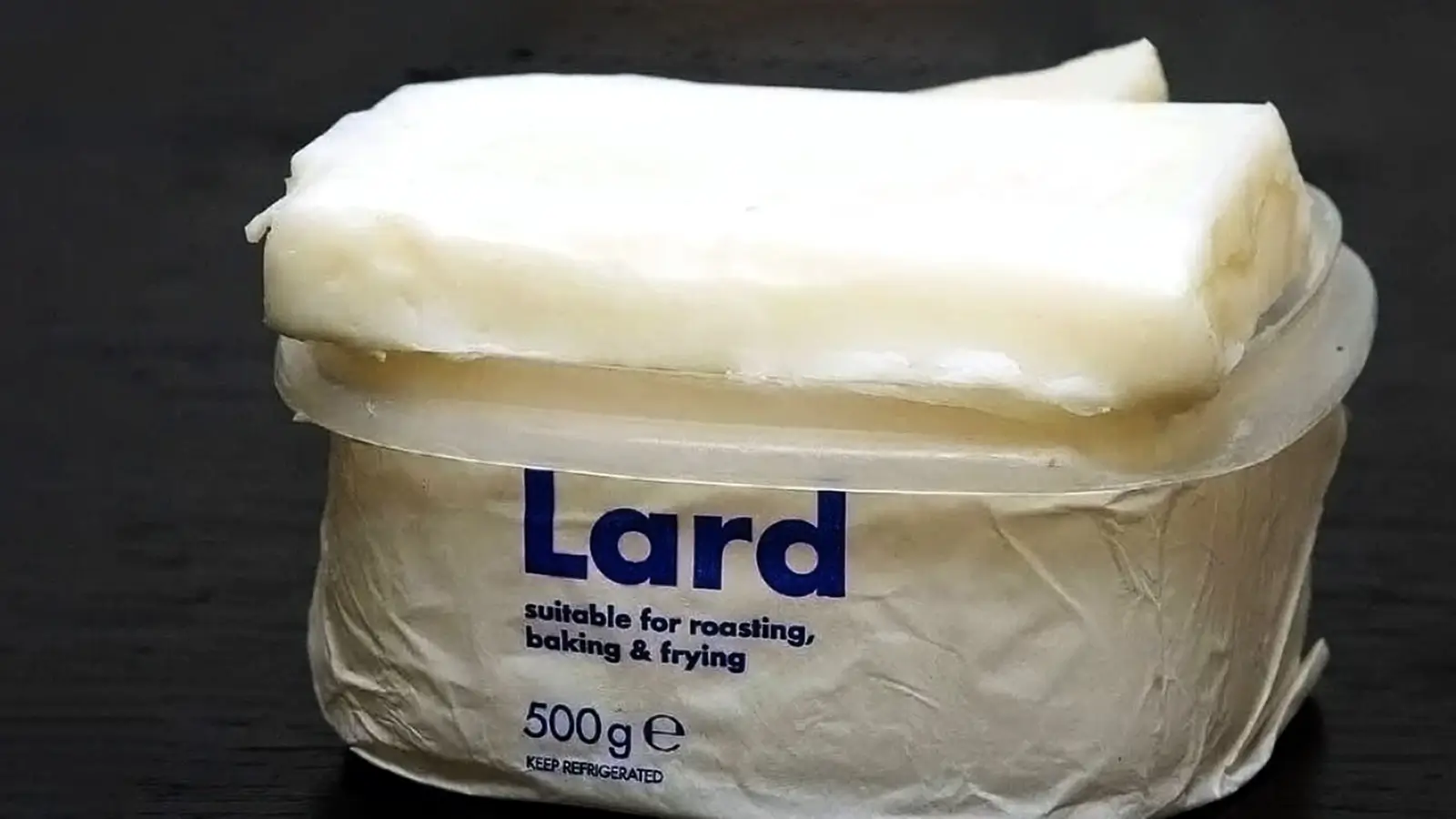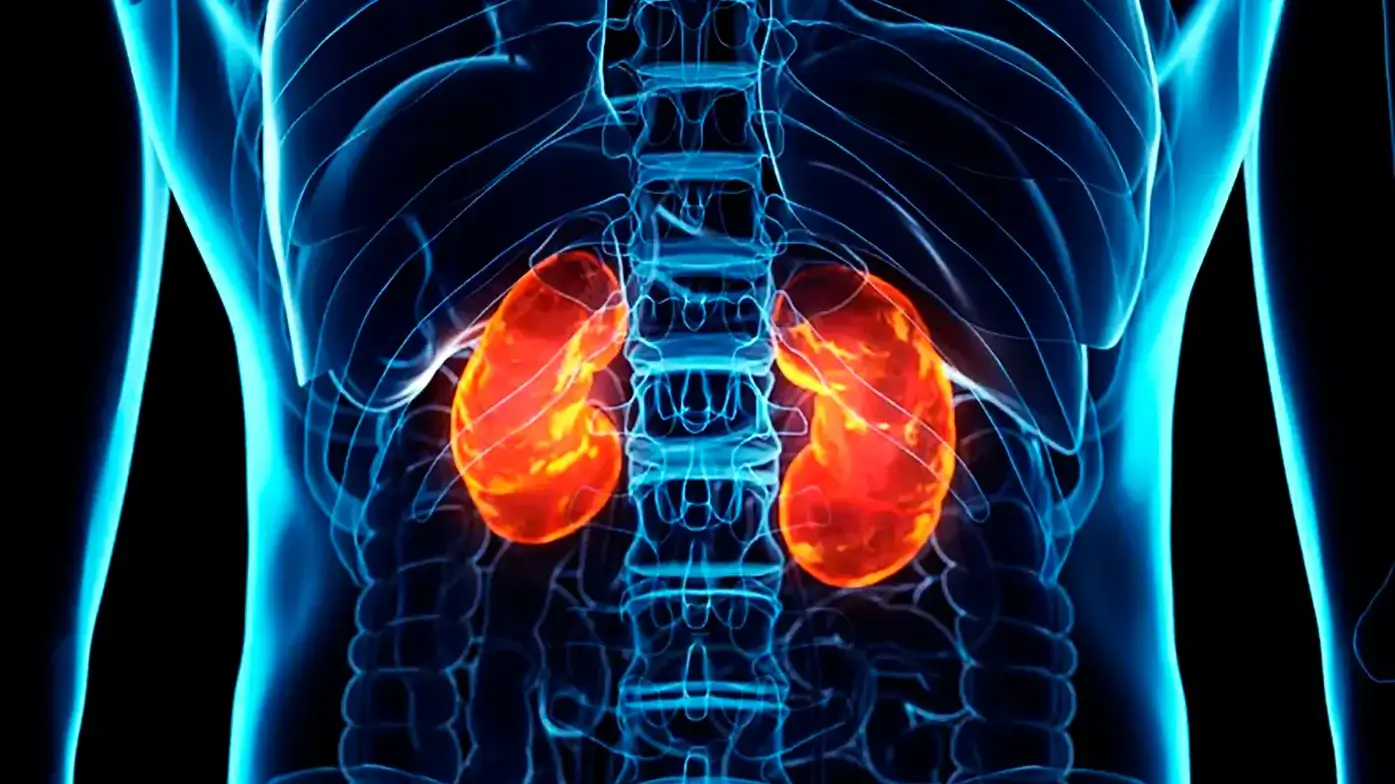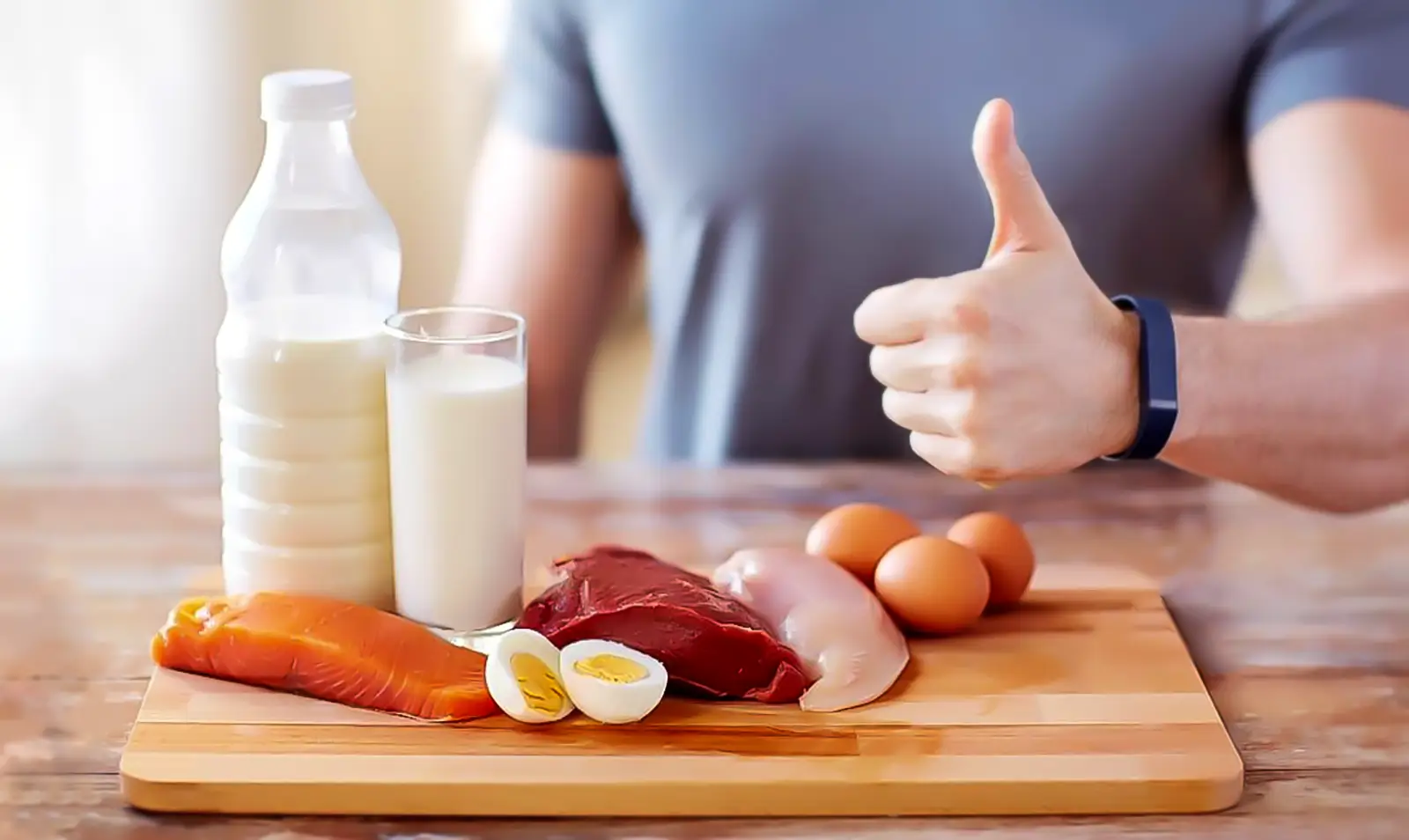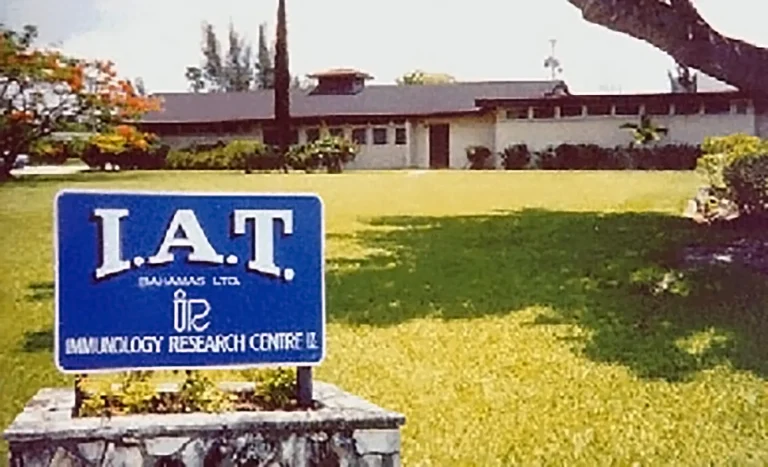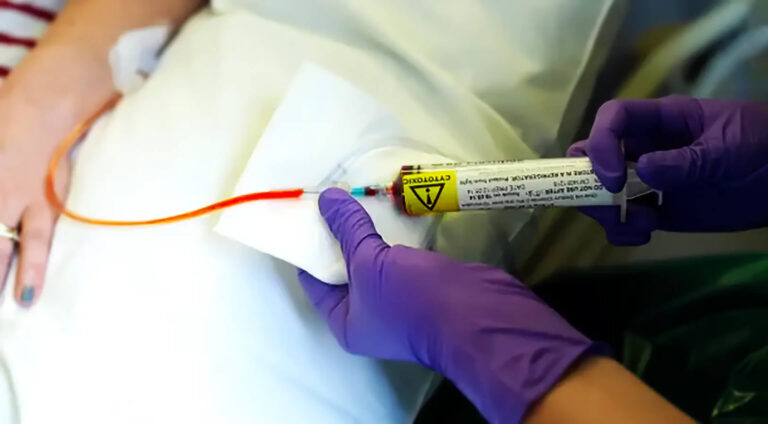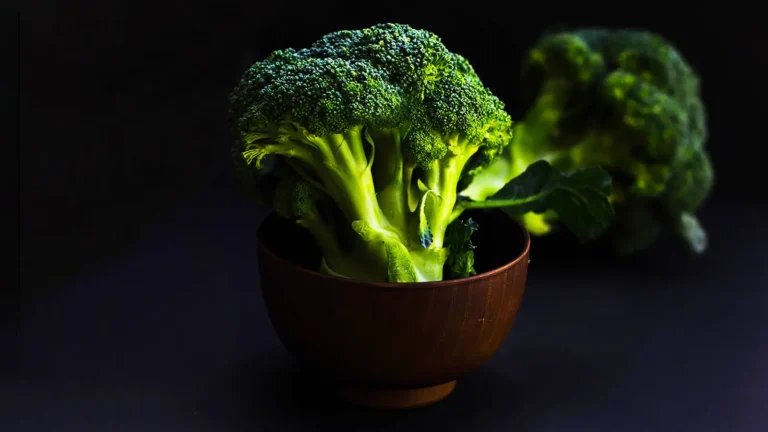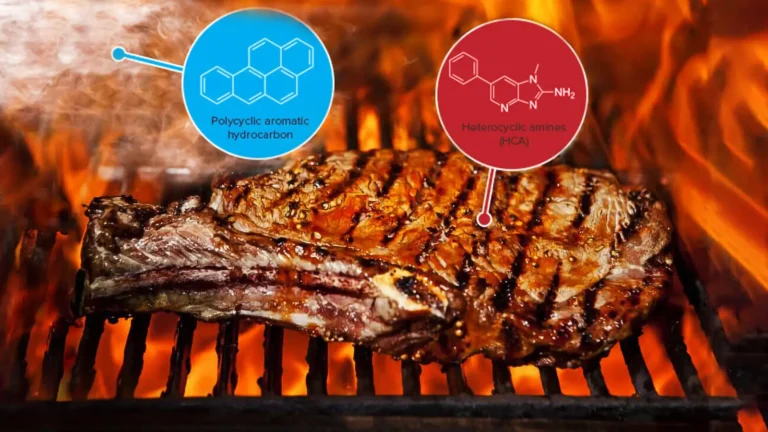A1 milk with the a1 beta-casein variant is a possible risk factor in the development of type 1 diabetes in children, autism, and heart illnesses in adults.
Milos Pokimica
Written By: Milos Pokimica
Medically Reviewed by: Dr. Xiùying Wáng, M.D.
Updated June 10, 2023Key Takeaways:
– Beta-casein is a protein that makes up about 30% of the protein in cow’s milk. It exists in two genetic variants: A1 and A2.
– A1 beta-casein in cow milk is different from all other mammals, which exclusively have A2 type including A2 cattle from India, and Africa, Buffalo, as same as other mammals and the same as human milk. Almost all cattle of the A1 type are related to cows of European origin for the subspecies of the original species of this mutation Bos Taurus.
– BCM7 is a peptide that breaks down from A1 beta-casein into 7 amino acids. It has opiate-like effects similar to narcotics such as morphine and can be harmful to low-density lipoproteins (LDL).
– There is a correlation between type 1 diabetes and antibodies to A1 beta-casein. These antibodies are believed to attack the cells that produce insulin in the pancreas due to similarities with BCM7’s protein structure.
– Casomorphins are opioids that can be found in dairy products, specifically in A1 beta-casein. They have been linked to autism and schizophrenia through the “opioid excess” theory
– Opioid peptides from cows’ milk have long been theorized as a possible cause of sudden infant death syndrome (SIDS), as they may inhibit the respiratory center in the brainstem, leading to apnea and death.
– Elevated basal irBCM (cattle casomorphins) was found in formula-fed infants showing a delay in psychomotor development and heightened muscle tone while the highest basal irHCM (human casomorphins) was observed in breast-fed infants with normal psychomotor development and muscle tone.
A1 beta-casein in cow milk.
Beta-casein is about 30% of the protein in cow’s milk. Beta-casein is present as one or two genetic variants; A1 or A2. Most cow’s milk contains a combination of A1 and A2 beta-casein. However, milk that contains only the A2 type without A1 beta-casein alpha is available in some countries.
The second variant, A2 beta-casein, is not associated with diabetes type 1.
The established relationship of this link between A1 beta-casein and type 1 diabetes, and heart disease is 0.982 and 0.76 (Laugesen and Elliott, 2003).
This is a very significant level if compared with other epidemiological reasons for these conditions, such as smoking and mortality from lung cancer r = 0.73 or the likelihood of people in the 1960s and heart conditions ten years later where r = 0.85.
The difference between A1 and A2 beta-casein is present because of a single amino acid substitution at 67 line of amino acids of 209 that they have in the chain.
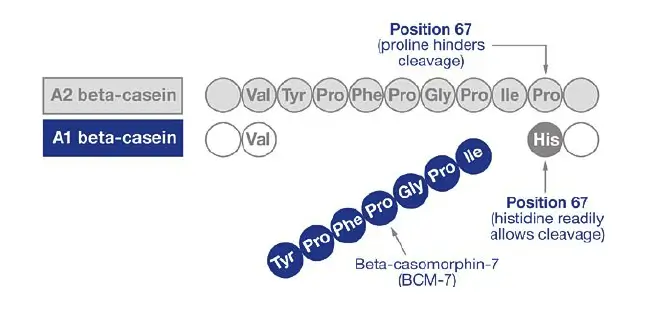
A1 beta-casein in cow milk is different from all other mammals, which exclusively have A2 type including A2 cattle from India, and Africa, Buffalo, as same as other mammals and the same as human milk. Almost all cattle of the A1 type are related to cows of European origin for the subspecies of the original species of this mutation Bos Taurus.
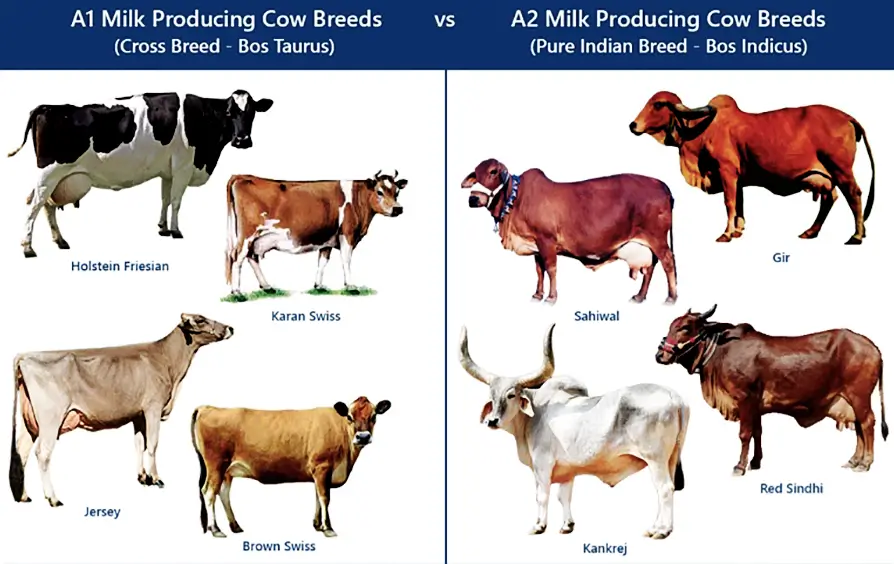
It is a result of a genetic mutation in cows in Europe that happened about 8,000 years ago. Today, A1 milk cows are bred in Europe and America, and A2 species are bred in New Zeeland. Holstein species have A1 and A2 beta-casein in almost equal amounts. The Jersey species typically has a little more than A2 but is also considered a mixed species. The same Jersey cows carry a “B” beta-casein that has proven to give more BCM7. Signs of poor histidine attachment, A1 beta-casein breaks down into peptides of 7 amino acids called beta casomorphin 7 (BCM7) when consumed. BCM7 is problematic because opiate is at the same level as narcotics like morphine and has similar effects. It is also an oxidant that is known to be detrimental to low-density lipoproteins (LDL). Because the links between 7 amino acids make it extremely strong, it is resistant to further degradation. When BCM7 enters the bloodstream, various problems arise.
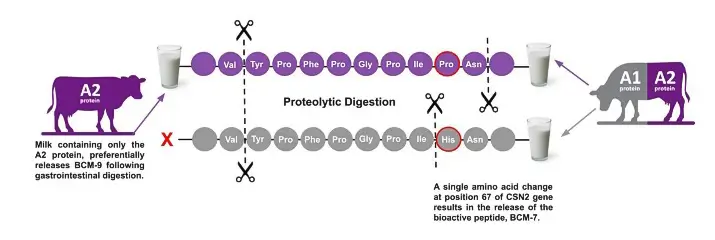
However, the BCM 7 is too large to be absorbed by a healthy coat in the intestine, which means that the health problem associated with A1 beta-casein is more likely to be affected by people with damaged digestive health or from diseases such as celiac disease or gastrointestinal disease.
If you have a leaky gut, then you can give yourself and your fetus if you are pregnant type 1 diabetes as an autoimmune disease. if you consume milk and dairy products, that is. Persons having any of the prevailing conditions are more suitable for abscess BCM7. In babies that naturally have increased intestinal permeability in order to improve the absorption of nutrients, there is a higher risk also.
Once it enters the bloodstream, BCM7 can easily break through the blood-brain barrier and enter the brain, where the connection to the receptors causes the symptoms of autism and schizophrenia.
This claim was initiated by research that was disseminated on rats, where rats showed similar tendencies in behavior and sympathy as autism and schizophrenia after BCM7 injection. The association of these effects was also confirmed by the ability to reverse the state and changes in opioid-antagonistic naloxone behavior. To add to that, it has long been recognized that opiates have an effect on immune function, which is the possible reason why A1 beta-casein and BCM7 are associated with autoimmune diseases.
Heart Disease.
The first discovery was made by Alexandra Steinerovathat have been investigating the reasons behind oxidative stress in infants. She discovered that babies who were fed milk formula had a higher level of antibodies to oxidized LDL (Steinerová et al, 1999). In 2004, Steinerova put forth the idea and did a study on BCM7 and the increase in antibodies in infants. A study demonstrated that infants fed A1 beta-casein baby formula developed significantly higher levels of these antibodies compared to that fed A2 beta-casein (Steinerová et al., 2004).
Today more research had been done and it is excepted in the scientific community that BCM7 has a pro-oxidative effect on LDL. In the case of cardiac diseases, additional studies have uncovered the mechanism by which the A1 beta-casein will develop the cardiac disease, and the primary effect is a BCM7 that oxidizes LDL that transports cholesterol from the liver to the tissues (Chin-Dusting et al., 2006). This is important because the oxidized LDL increases the risk of heart disease as a result of increased artery incidence and as a consequence increased plaque accumulation, ie. oxidized LDL makes arteries sticky and leads to the formation of plaque.
Type 1 Diabetes.
Type 1 diabetes, is classified as an autoimmune disease that occurs due to an immune system assault on cells that produce insulin in the pancreas.
And it is not genetic as you might lead to believe by conventional medicine. Genetic predisposition plays a role but to prove the fact that it is just one more maladaptation we can look at identical twins. The concordance of diabetes type 1 in identical twins is only 50 %. Meaning one gets it one does not. If it is genetic and the environment does not play a role that would not happen. It is something we ate or to be precise mothers ate or give the babies that cause them to develop this autoimmune disease.
In Japan diabetes type 1 is 18 times lower than in the U.S., but when the Japanese migrate to America and start to adopt the Western diet, they develop the same rate of diabetes as Americans. Some countries have 100 times the less diabetes type 1 rates than others depending mostly on the diet the population eats. Type one diabetes started to rise after World War 2 as same as other diseases, so it is not genetics. It is maladaptation, and we now know what is causing it.
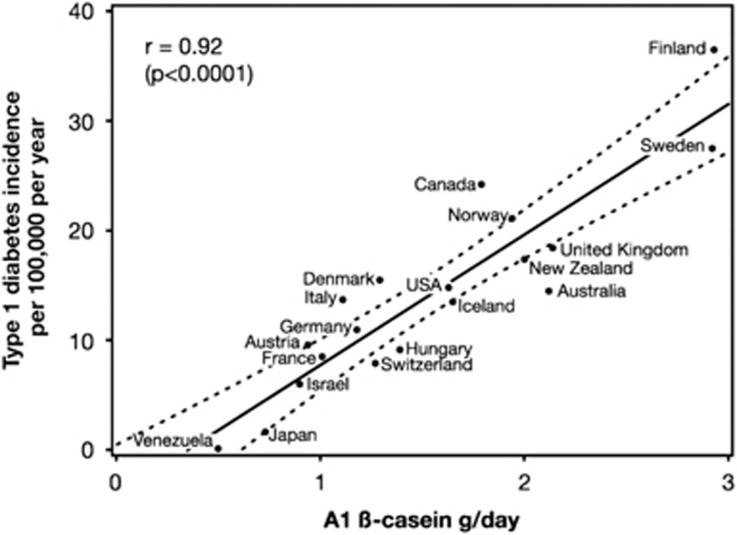
In 1999 scholars in Germany discovered that there is a correlation between type 1 diabetes and the level of antibodies to A1 beta-casein. It is believed that these antibodies are, in fact, based on the amino acid sequence of the problematic opioid BCM7, which is derived from A1 beta-casein. Because the sequence has similarities with the protein structure of the cells that produce insulin in the pancreas, the antibodies attack the pancreas together with the BCM7 peptides. In this study, every single kid had significant levels of A1 beta-casein antibodies in their blood but not of antibodies to other milk proteins (Karjalainen et al., 1992). The conclusion was:
“Patients with insulin-dependent diabetes mellitus have immunity to cows milk albumin, with antibodies to an albumin peptide that is capable of reacting with a beta-cell-specific surface protein. Such antibodies could participate in the development of islet dysfunction.”
Karjalainen et al., 1992

Autism, Schizophrenia, and Sudden Infant Death Syndrome.
Also, there are opiates that cross the blood-brain barrier. Because BCM7 opiates should not be present at all and represent a form of unnatural mutation in cattle it should not be a great surprise in the relationship between A1 beta-casein and casein in general to association with autism also.
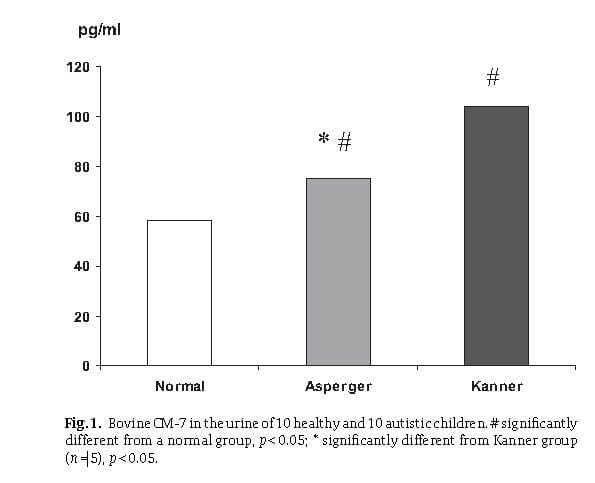
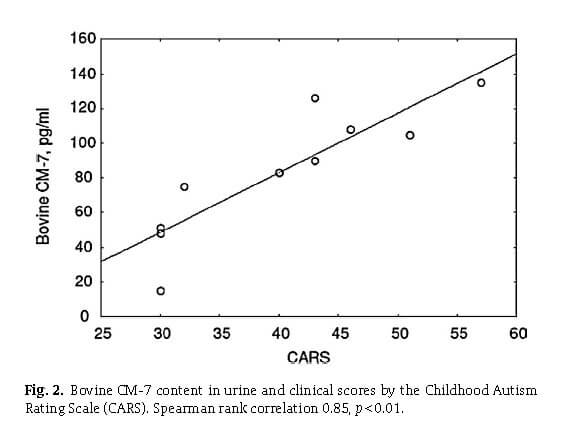
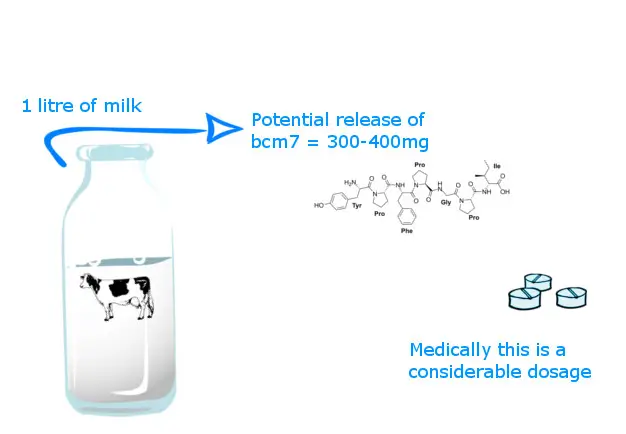
BCM 7 obtained from A1 beta-casein and gluteomorphin derived from gluten are both opiates that can be associated with these symptoms. Because of this, a huge number of children with autism show significant improvements if they avoid gluten and casein. The relationship between autism and opiates is nothing new. In 1979, Jaak Panksepp, a scientist, suggested that connection. In 2000, a team of researchers led by Robert Cade reviewed the existing evidence linking the casein and gluten opiates with autism and schizophrenia. They collected new data from 150 autistic children, 120 schizophrenia adults, 43 normal children, and 76 normal adults (Cade et al., 2000). Autistic children and schizophrenia adults showed a constant elevated abnormal value of casomorphin and gluteomorphin opioid peptides obtained from beta-casein and gluten.
Actually, all adults show elevated levels of this morphine opioid substance after consumption of milk or yogurt, even the adult that does not have inflammation in the gut at least for 8 hours after consumption (Chabance et al., 1998).
The theory goes something like this. You have a genetic predisposition for diseases such as autism or schizophrenia. This is the so-called “opioid excess” theory. You have a genetic predisposition and then have some early exposure to environmental stressors that damage your gut and make it leaky or you are just a regular baby that naturally has a leaky gut. Then comes the milk or dairy products with all of the casomorphins leaking into the blood in excess and then into the brain triggering disease to form. These opioids are thought that could play one of the roles in the development of autism and other neurological disorders. The problem with these casomorphins is also that when you examine the blood-brain barrier of autism patients, their blood-brain barrier seems weaker too.
In a normal individual, there are going to be some of the sedative effects but in someone with a leaky gut and a leaky blood-brain barrier it is going to have a much stronger effect, and if that person has a genetic predisposition or sensitivity to it then the real disease can form. By the so-called “opioid excess” theory anyway.
Of the seventy autistic children placed on a gluten-free and casein-free diet, 81% showed significant improvements over a period of 3 months, and more than a third of those who did not recover were still high in opioid peptides, indicating that they did not keep the child’s diet. Although only 40% of adults have improved, it is believed that many of them have not been using the diet for long enough to provide their bodies with the ability to eliminate existing BCM7 molecules in the brain that can last for more than a year.
In 1999, Zhongjie Sun and Robert Cade injected BCM7 opioid derivatives from A1 beta-casein into rats to determine if it enters the brain (Cade et al., 1999). They found out that it will enter the various areas of the brain that were previously proven to be associated with autism and schizophrenia. As a consequence, it was reasoned that the BCM7 could break through a blood-brain barrier and hit parts of the brain that are susceptible to those affected by autism and schizophrenia. In the same year, they conducted a similar experiment and found that rats injected with BCM7 exhibited several significant symptoms of autism and schizophrenia such as intolerance, reduced pain sensitivity, and lack of response to external stimuli.
In 2003, Sun and Cade continued their research and discovered that gluteomorphin opioids derived from gluten affect only three regions of the brain while BCM7 opioids derived from A1 beta-casein affected 45 regions and circulation of this peptide into the infant’s immature central nervous system might also inhibit the respiratory center in the brainstem leading to apnea and death (Sun et al, 2003). Opioid peptides from milk have long been theorized as a possible cause of sudden infant death syndrome (Ramabadran and Bansinath, 1988).
This not only proved that BCM7 comes to the brain much more easily but it is a much larger factor in the development of autism and schizophrenia. Are these studies going to lead to more understanding or better treatment of these individuals I do not know. There could be individuals with a genetic predisposition to these diseases that these molecular mimicry proteins only aggravate. I don’t know. Science still doing research but it is a slow process and who will have the interest to finance these studies? It will take some time.
Opoid casomorphins and psychomotor delay.
A1 milk vs A2 milk got a big political issue in Australia and New Zeeland at one point. It ended with obligatory labeling of milk and all dairy products. In Australia, you cannot buy a bottle of A1 milk or any other dairy product without a visible label that shows does the milk contain an A1 or A2 form of protein.

Why are these opioids in the milk in the first place? And there are in all of the milk in existence, not just the A1 milk variant. A1 milk is just a more potent variant. For normal human babies as well as calves, they are there to create a craving or to get them addicted like regular drug addicts are, but in this case, the addiction is going to trigger the baby’s curing for opiates and then the baby is going to get all the nutrition from milk that it needs to grow. It is all as it should be but now we have switched species. Just like the protein amino acid profile of human and cow milk is not the same so the profile of these casomorphins is not the same.
In this study (Kost et al., 2009) the babies fed on cow’s milk with a higher level of bovine casomorphins seem to suffer from psychomotor delay but exactly the reverse was found for human casomorphins. Human casomorphins seams to help the brain of humans. The conclusion of the study was:
“The highest basal irHCM (human casomorphins) was observed in breast-fed infants with normal psychomotor development and muscle tone. In contrast, elevated basal irBCM (cattle casomorphins) was found in formula-fed infants showing a delay in psychomotor development and heightened muscle tone. Among formula-fed infants with normal development, the rate of this parameter directly correlated to basal irBCM. The data indicate that breastfeeding has an advantage over artificial feeding for infants development during the first year of life and support the hypothesis for the deterioration of bovine casomorphin elimination as a risk factor for delay in psychomotor development and other diseases such as autism.”
(Kost et al., 2009)
The structure of casein in human and cow milk is significantly different matching only by 47%, and especially if we have mutated A1 casein in the mix, then we have a situation that can trigger diabetes type 1 in the baby. Bovine casomorphin is much stronger than human one, and it is almost at the level of morphine in its effect (Trivedi et al., 2015). Cow casomorphins bind tighter to the serotonin receptors in the brain than human one does. Also, opioid casomorphins were produced by both A1 and A2 milk with no difference in potency (Asledottir et al., 2017). Also, there is much more casein in general in cow’s milk, 15 times more to be precise than in human’s milk. Twenty-one peptides and eight from beta-casein were found in cow milk, and only five peptides with only one from beta-casein were found in human milk.
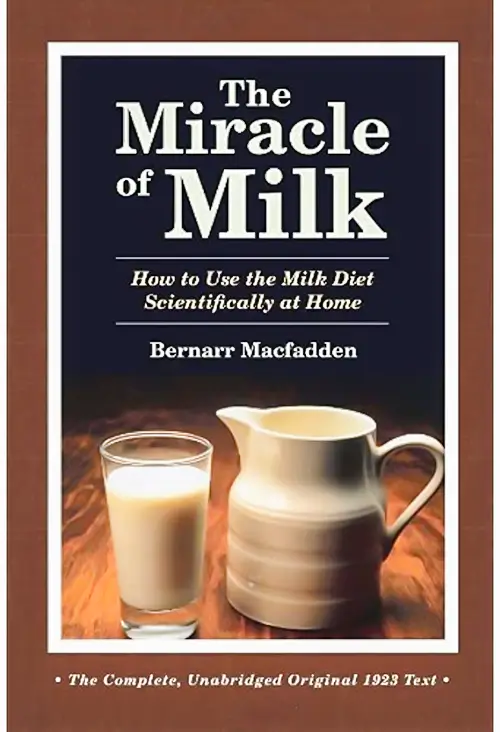
Should you switch to A2 which is ten times more expensive? What about pizza with A1 milk cheese or any other commercial A1 milk product? Most of the chocolates are made with A1 milk powder. The most realistic scenario is that even if we want to switch to A2 there is no A2 milk around if you live outside of New Zeeland. And even in New Zeeland, there is the chipset powder A1 milk made for the food industry in almost everything. From ice cream to chocolate. And even if we could spend additional money and have that A2 ice cream, milk is still correlated including A2 to a wide range of health issues (Milk and dairy- Health risk correlations).
The Devil in Milk, Why It Can be Dangerous.
FAQ
References:
- Karjalainen, J., Martin, J. M., Knip, M., Ilonen, J., Robinson, B. H., Savilahti, E., Akerblom, H. K., & Dosch, H. M. (1992). A bovine albumin peptide as a possible trigger of insulin-dependent diabetes mellitus. The New England journal of medicine, 327(5), 302–307. https://doi.org/10.1056/NEJM199207303270502
- Chabance, B., Marteau, P., Rambaud, J. C., Migliore-Samour, D., Boynard, M., Perrotin, P., Guillet, R., Jollès, P., & Fiat, A. M. (1998). Casein peptide release and passage to the blood in humans during digestion of milk or yogurt. Biochimie, 80(2), 155–165. https://doi.org/10.1016/s0300-9084(98)80022-9
- Kost, N. V., Sokolov, O. Y., Kurasova, O. B., Dmitriev, A. D., Tarakanova, J. N., Gabaeva, M. V., Zolotarev, Y. A., Dadayan, A. K., Grachev, S. A., Korneeva, E. V., Mikheeva, I. G., & Zozulya, A. A. (2009). Beta-casomorphins-7 in infants on different type of feeding and different levels of psychomotor development. Peptides, 30(10), 1854–1860. https://doi.org/10.1016/j.peptides.2009.06.025
- Trivedi, M. S., Hodgson, N., Walker, S. G., Trooskens, G., Nair, V., & Deth, R. C. (2015). Epigenetic effects of casein-derived opioid peptides in SH-SY5Y human neuroblastoma cells. Nutrition & Metabolism, 12(1). https://doi.org/10.1186/s12986-015-0050-1
- Asledottir, T., Le, T. T., Petrat-Melin, B., Devold, T. G., Larsen, L. B., & Vegarud, G. E. (2017). Identification of bioactive peptides and quantification of β-casomorphin-7 from bovine β-casein A1, A2 and I after ex vivo gastrointestinal digestion. International Dairy Journal, 71, 98-106. https://doi.org/10.1016/j.idairyj.2017.03.008
- Cade, R., Privette, M., Fregly, M., Rowland, N., Sun, Z., Zele, V., Wagemaker, H., & Edelstein, C. (2000). Autism and Schizophrenia: Intestinal Disorders. Nutritional neuroscience, 3(1), 57–72. https://doi.org/10.1080/1028415X.2000.11747303
- Pal, S., Woodford, K., Kukuljan, S., & Ho, S. (2015). Milk Intolerance, Beta-Casein and Lactose. Nutrients, 7(9), 7285-7297. https://doi.org/10.3390/nu7095339
- Chia, J. S. J., McRae, J. L., Kukuljan, S., Woodford, K., Elliott, R. B., Swinburn, B., & Dwyer, K. M. (2017). A1 beta-casein milk protein and other environmental pre-disposing factors for type 1 diabetes. Nutrition & diabetes, 7(5), e274. https://doi.org/10.1038/nutd.2017.16
- Sun, Z., Zhang, Z., Wang, X., Cade, R., Elmir, Z., & Fregly, M. (2003). Relation of beta-casomorphin to apnea in sudden infant death syndrome. Peptides, 24(6), 937–943. https://doi.org/10.1016/s0196-9781(03)00156-6
- Ramabadran, K., & Bansinath, M. (1988). Opioid peptides from milk as a possible cause of sudden infant death syndrome. Medical hypotheses, 27(3), 181–187. https://doi.org/10.1016/0306-9877(88)90138-7
- Chin-Dusting, J., Shennan, J., Jones, E., Williams, C., Kingwell, B., & Dart, A. (2006). Effect of dietary supplementation with beta-casein A1 or A2 on markers of disease development in individuals at high risk of cardiovascular disease. The British journal of nutrition, 95(1), 136–144. https://doi.org/10.1079/bjn20051599
- Steinerová, A., Racek, J., Stozický, F., Tatzber, F., & Lapin, A. (1999). Autoantibodies against oxidized LDL in the first phase of life. Low density lipoproteins. Clinical chemistry and laboratory medicine, 37(9), 913–917. https://doi.org/10.1515/CCLM.1999.135
- Steinerová, A., Korotvicka, M., Racek, J., Rajdl, D., Trefil, L., Stozický, F., & Rokyta, Z. (2004). Significant increase in antibodies against oxidized LDL particles (IgoxLDL) in three-month old infants who received milk formula. Atherosclerosis, 173(1), 147–148. https://doi.org/10.1016/j.atherosclerosis.2003.12.006
- Laugesen, M., & Elliott, R. (2003). Ischaemic heart disease, Type 1 diabetes, and cow milk A1 beta-casein. The New Zealand medical journal, 116(1168), U295. [PubMed]
Related Posts
Do you have any questions about nutrition and health?
I would love to hear from you and answer them in my next post. I appreciate your input and opinion and I look forward to hearing from you soon. I also invite you to follow us on Facebook, Instagram, and Pinterest for more diet, nutrition, and health content. You can leave a comment there and connect with other health enthusiasts, share your tips and experiences, and get support and encouragement from our team and community.
I hope that this post was informative and enjoyable for you and that you are prepared to apply the insights you learned. If you found this post helpful, please share it with your friends and family who might also benefit from it. You never know who might need some guidance and support on their health journey.
– You Might Also Like –

Learn About Nutrition
Milos Pokimica is a doctor of natural medicine, clinical nutritionist, medical health and nutrition writer, and nutritional science advisor. Author of the book series Go Vegan? Review of Science, he also operates the natural health website GoVeganWay.com
Medical Disclaimer
GoVeganWay.com brings you reviews of the latest nutrition and health-related research. The information provided represents the personal opinion of the author and is not intended nor implied to be a substitute for professional medical advice, diagnosis, or treatment. The information provided is for informational purposes only and is not intended to serve as a substitute for the consultation, diagnosis, and/or medical treatment of a qualified physician or healthcare provider.NEVER DISREGARD PROFESSIONAL MEDICAL ADVICE OR DELAY SEEKING MEDICAL TREATMENT BECAUSE OF SOMETHING YOU HAVE READ ON OR ACCESSED THROUGH GoVeganWay.com
NEVER APPLY ANY LIFESTYLE CHANGES OR ANY CHANGES AT ALL AS A CONSEQUENCE OF SOMETHING YOU HAVE READ IN GoVeganWay.com BEFORE CONSULTING LICENCED MEDICAL PRACTITIONER.
In the event of a medical emergency, call a doctor or 911 immediately. GoVeganWay.com does not recommend or endorse any specific groups, organizations, tests, physicians, products, procedures, opinions, or other information that may be mentioned inside.
Editor Picks –
Milos Pokimica is a doctor of natural medicine, clinical nutritionist, medical health and nutrition writer, and nutritional science advisor. Author of the book series Go Vegan? Review of Science, he also operates the natural health website GoVeganWay.com
Latest Articles –
Plant Based News
-
‘Why People Have Coca Cola For Breakfast, And What Alt Dairy Can Learn’
on April 10, 2024
-
These Double Chocolate Overnight Oats Are A Luxurious Vegan Breakfast
on April 10, 2024
-
Wetherspoons Warns Lemons And Limes ‘May Not Be Vegan’
on April 10, 2024
-
This Halloumi And Pistachio Salad Is Completely Vegan
on April 9, 2024
-
This Vegetable ‘Fried’ Rice Is Oil-Free And Packed With Protein
on April 9, 2024
-
Is Whole Milk Having A Comeback? Nutritionist Warns Against Its ‘Health Benefits’
on April 9, 2024
-
Company Raises $3.2 Million For Plant-Based Pigment Development
on April 9, 2024
Top Health News — ScienceDaily
- New way to generate human cartilageon April 10, 2024
University of Montana researchers and their partners have found a new method to generate human cartilage of the head and neck.
- Researchers discover how we perceive bitter tasteon April 10, 2024
A new study reveals the detailed protein structure of the TAS2R14, a bitter taste receptor that allows us to perceive bitter taste. In addition to solving the structure of this taste receptor, the researchers were also able to determine where bitter-tasting substances bind to TAS2R14 and how they activate them. The findings may lead to the development of drugs that targeting taste receptors.
- Mechanism of action of the hepatitis B and D virus cell entry inhibitor bulevirtide decipheredon April 10, 2024
Over 12 million people worldwide suffer from a chronic infection with the hepatitis D virus. This most severe viral liver disease is associated with a high risk of dying from liver cirrhosis and liver cancer. It is caused by the hepatitis D virus (HDV), which uses the surface proteins of the hepatitis B virus (HBV) as a vehicle to specifically enter liver cells via a protein in the cell membrane — the bile salt transporter protein NTCP.
- New insight into combating drug-resistant prostate canceron April 10, 2024
New research sheds light on the significance of the glucocorticoid receptor in drug-resistant prostate cancer, showing that the development of drug resistance could be prevented by limiting the activity of coregulator proteins.
- A promising target for new RNA therapeutics now accessibleon April 10, 2024
Only recently, a new era in medicine began with the first RNA vaccines. These active substances are modified RNAs that trigger immune responses of the human immune system. Another approach in RNA medicine targets the body’s own RNA and its protein modulators by specifically tailored active substances.
- Obese and overweight children at risk of iron deficiencyon April 10, 2024
Children and young people who are overweight or obese are at significantly higher risk of iron deficiency, according to a study by nutritional scientists.
- AI makes retinal imaging 100 times faster, compared to manual methodon April 10, 2024
Researchers applied artificial intelligence (AI) to a technique that produces high-resolution images of cells in the eye. They report that with AI, imaging is 100 times faster and improves image contrast 3.5-fold. The advance, they say, will provide researchers with a better tool to evaluate age-related macular degeneration (AMD) and other retinal diseases.
PubMed, #vegan-diet –
- Changes in the consumption of isoflavones, omega-6, and omega-3 fatty acids in women with metastatic breast cancer adopting a whole-food, plant-based diet: post-hoc analysis of nutrient intake data…on April 5, 2024
CONCLUSION: Transitioning to a WFPB diet resulted in significantly increased isoflavone intake and decreased n-6:n-3 ratio in women with breast cancer.
- A whole food, plant-based randomized controlled trial in metastatic breast cancer: feasibility, nutrient, and patient-reported outcomeson March 30, 2024
CONCLUSIONS: Significant dietary changes in this population are feasible and may improve QOL by improving treatment-related symptoms. Additional study is warranted.
- Restrictive Diets in Patients with Fibromyalgia: State of the Arton March 28, 2024
Around 20-30% of Fibromyalgia patients modify their dietary habits after diagnosis, including avoiding certain food groups such as cereals. In this systematic review, we used the PRISMA guidelines to select the main studies that have evaluated the effectiveness of restrictive diets, including elimination and vegetarian diets, in patients with Fibromyalgia. Data on vegetarian/vegan diets are more consistent than data on elimination diets due to higher quality and better results of the […]
- Dietary Intakes of Long-Chain Polyunsaturated Fatty Acids and Impulsivity: Comparing Non-Restricted, Vegetarian, and Vegan Dietson March 28, 2024
CONCLUSIONS: The significantly lower omega-3 LCPUFA dietary intakes in the vegan diets were associated with higher scores in the second-order attentional aspect of self-reported impulsiveness.
- Impact of iodine supply in infancy and childhoodon March 28, 2024
PURPOSE OF REVIEW: To assess the most relevant articles on the impact of iodine supply in at-risk populations, namely infants and young children, pregnant and lactating women.
Random Posts –
Featured Posts –

Latest from PubMed, #plant-based diet –
- Environmental conditions affect the nutritive value and alkaloid profiles of Lupinus forage: Opportunities and threats for sustainable ruminant systemsby Ana R J Cabrita on April 10, 2024
The identification of crops that simultaneously contribute to the global protein supply and mitigate the effects of climate change is an urgent matter. Lupins are well adapted to nutrient-poor or contaminated soils, tolerate various abiotic stresses, and present relevant traits for acting as ecosystem engineers. Lupins are best studied for their seeds, but their full foraging potential needs further evaluation. This study evaluated the effects of location and sowing date on forage production,…
- Stronger together than apart: The role of social support in adopting a healthy plant-based eating patternby Robin Ortiz on April 10, 2024
The influence of the social environment on health behaviors is well documented. In recent years, there is mounting evidence of the health benefits of a plant-based eating pattern, yet little is known about how the social environment impacts the adoption of a plant-based eating pattern, specifically. In this convergent parallel mixed-methods study, we analyzed quantitative survey data and qualitative focus group data to assess how social support impacted participants of a lifestyle medicine…
- Simultaneous detection of mycotoxins and pesticides in human urine samples: A 24-h diet intervention study comparing conventional and organic diets in Spainby Jose A Gallardo-Ramos on April 10, 2024
Pesticides and mycotoxins, prominent chemical hazards in the food chain, are commonly found in plant-based foods, contributing to their pervasive presence in the human body, as evidenced by biomonitoring programs. Despite this, there is limited knowledge about their co-occurrence patterns. While intervention studies have demonstrated that organic diets can significantly reduce pesticide levels, their impact on mycotoxin exposure has been overlooked. To address this gap, this study pursued two…
- Plant-based meat analogues (PBMAs) and their effects on cardiometabolic health: An 8-week randomized controlled trial comparing PBMAs with their corresponding animal-based foodsby Darel Wee Kiat Toh on April 10, 2024
CONCLUSIONS: A plant-based meat analogues diet did not show widespread cardiometabolic health benefits compared with omnivorous diets over 8 weeks. The composition of PBMAs may need to be considered in future trials.
- Adherence to the Mediterranean diet in two Moroccan populations living at different distances from the Mediterranean Seaby Mohamed Mziwira on April 8, 2024
CONCLUSION: The study data indicate that Mediterranean Diet is far from being a global pattern in this Moroccan population. The study draws attention to the need for a promoting intervention to maintain this pattern as the original diet in the region.
- Production of Toxins by the Gut Microbiota: The Role of Dietary Proteinby Livia Alvarenga on April 8, 2024
PURPOSE OF REVIEW: This narrative review will discuss how the intake of specific protein sources (animal and vegetable) providing specific amino acids can modulate the gut microbiota composition and generate toxins. A better understanding of these interactions could lead to more appropriate dietary recommendations to improve gut health and mitigate the risk of complications promoted by the toxic metabolites formed by the gut microbiota.
